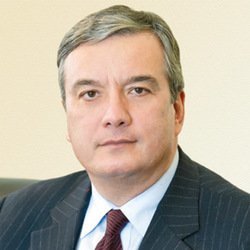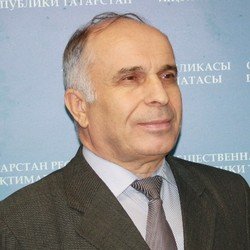Experts on Medvedev’s four-day working week: costs to fall on businesses
It is necessary to improve workforce productivity for successful reform, specialists warn
Head of the Russian government Dmitry Medvedev began to talk about the possibility of introducing a four-day working week again. According to the premier, it is necessary to make several amendments to labour legislation for flexible regulation of the number of working hours and days. Medvedev cites European practice: a working week in France is 35 hours, it is 29 hours in the Netherlands, while in Russia it is 40 hours. The premier doesn’t see any novelty in the presupposed reform having reminded that there was a six-day working week in the USSR in the 60s. If experts surveyed by Realnoe Vremya, however, aren’t sceptical about this idea, they treat it carefully: for its successful introduction, firstly, it is necessary to improve workforce productivity, secondly, not all people will like the idea of three days off in a row.
Henry Ford and New Zealanders’ example
Dmitry Medvedev first spoke about the reduction in a working week to four days at the 108th session of the International Labour Organization this June and caused a lot of noise in society. Then the premier noted that technological progress brings to not only a reduction in workplaces but also working time, a rise in leisure time and “it is quite possible that the future lies with a four-day working week as a new basis of the social and labour contract”.
The head of the Russian government put an example of Henry Ford who reduced the working week in his enterprises from 48 to 40 having got “an impressive growth of workforce productivity” and Perpetual Guardian company from New Zealand, which reduced a working week to 4 days in 2018 and as a result got 20% growth of productivity.
In Medvedev’s opinion, the long week, a constant hunt for success backfire with systemic tiredness and chronic stress, which causes a reduction in workforce productivity — so it is a vicious circle, as the company has to put pressure on its workers to get profit. On 12 September the premier assured that such a reform doesn't have to cause a fall in salaries and noted growth of the number of freelancers working at home without any rules of internal office order. Introduction of technologies is to help to make such a reform as well.
President of Russia Vladimir Putin thinks the main way of bettering the quality of life of Russians is to improve workforce productivity. “If we think that the most important thing is what we have to do in different ways when implementing national projects, in order to get higher workforce productivity and settle issues linked with people’s well-being, of course, growth of workforce productivity is one of the key problems,” he claimed during the direct line in June. A year ago he charged the government with providing a no less than 5% workforce productivity growth pace to reach the level of leading world economies 10 years later.
“If we introduce such a week without reducing salaries, costs will, first of all, fall on businesses”
However, if Dmitry Medvedev’s initiative doesn’t cause scepticism among the experts surveyed by Realnoe Vremya it does plenty of questions. So Director of Express HR agency Natalia Lopatina thinks that businesses will just suffer from a four-day working week, “while those who want to work less are already working little”.

Doctor of Economic Sciences Ildar Ablayev, director general of Tatar Innovative Economy Management Academy ANO, considers that though the idea itself sounds intriguing, at first it is necessary to improve workforce productivity by 25-30% to make it real:

“What should men do in flats? Should they do sport for three days?”
Fanil Gabdrakhmanov, chairman of the Interregional Occupational Safety and Health Association who worked as the vice minister of labour and employment of Tatarstan in 1998-2007, noted that it takes much time to introduce such practices and also remembered the six-day week in the USSR. He remembers that it took much time to introduce the five-day week. And today the approach must be well thought out, it will be necessary to study everything carefully, its influence on the economy, the country in general and every enterprise in particular.

Commenting on Medvedev’s arguments on the rise in the number of freelancers in the labour market, Fanil Gabdrakhmanov paid attention to the fact that though there is such a category of people, not all workable people can become freelancers:
“Freelancers can work at night, at daytime, at weekends, they are freer people. And there are usual executors. They need to go to work every day, they enjoy working with people, we have a lot of people who do collective labour today.”
The chairman of the Interregional Occupational Safety and Health Association also told Realnoe Vremya that Russian enterprises in fact already have experience of a 32-hour working week: “This has been very frequent, unfortunately, since the 1990s”. And dealing with occupational safety and health issues, employees of the association go to such enterprises and note that people aren’t far from being glad about the transition to the four-day week.
“It is obvious that it isn’t correct to compare such a situation, but still there is a big category of people today who enjoy working with people. Labour created human, he needs to work. If there is no labour, the opposite process begins,” Gabdrakhmanov thinks.